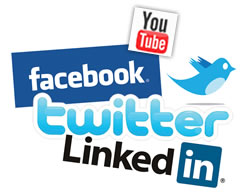 Back in 2005, the social media landscape looked very different. The two main players back then were Bebo and MySpace. They had a three-year run of basically zero competition.
Back in 2005, the social media landscape looked very different. The two main players back then were Bebo and MySpace. They had a three-year run of basically zero competition.
MySpace relied heavily on its “portal strategy” of building an audience around entertainment and music – but, in the end, it failed because it failed to innovate. In 2008, both Bebo and MySpace fell victim to the Facebook disease and their users flocked to Facebook!
Although all of this is well documented, many people forget that in 2007 MySpace was in theory worth $12billion (if the recent Facebook valuation methodology had been applied!). Amazingly, by the following year, Facebook had overtaken MySpace as the world’s leading social network. If nothing else, this demonstrates the fragility of social networks and the promiscuous behaviour that users are capable of if they’re given a better offer.
So will Facebook become victim to the evolution of social media?
The answer to this question depends on Facebook. If Facebook fails to attract a younger audience, and competitors like Google-plus and Twitter capitalise on new markets, then Facebook may be left in a difficult position. We can already see trends appearing in America that suggest this is already happening.
Facebook still remains the most popular social network among young people in America. But plenty of young people in their early to mid-teens are turning their attention elsewhere. They’re checking out new mobile apps, hanging out on Tumblr, Instagram and Pinterest – or simply sending plain, old text messages from their phones.
Their goal is to communicate with smaller circles of friends and share their thoughts and feelings away from the prying eyes of Mum and Dad. Yes, it’s a ‘generation thing’ that seems to have an evolution span of between five and ten years. It looks like it’s an inevitable fact of online life that could prove very costly for the newly-created billionaires at Facebook et al.
